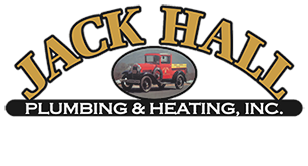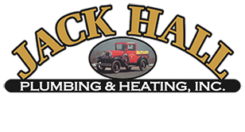Indoor Air Quality FAQs
At Jack Hall Plumbing & Heating, your comfort, health and safety are our top priority. We provide a variety of indoor air quality services that improve the air you breathe, including furnace, boiler and air conditioning repairs and upgrades, as well as duct sealing. We’re also happy to answer any questions you may have about your home’s indoor air quality.
Check out some of the most commonly asked questions about indoor air quality below, or contact us to schedule a private consultation for indoor air quality services in Glens Falls, Queensbury, Saratoga, Bolton Landing and the surrounding area.
IAQ is the acronym for Indoor Air Quality, which refers to the quality of the air inside your home, particularly as it relates to your family’s health and comfort. Several factors influence and contribute to IAQ, including temperature and humidity, ventilation, and indoor pollutants, such as tobacco smoke, gasses, mold, mildew, dust, and other allergens.
It’s important to understand and control indoor air quality because we spend a significant amount of time indoors, and poor indoor air quality can have a direct impact on our health and well-being. Poor indoor air quality has been linked to a variety of health issues, ranging from mild to serious.
According to the U.S. Environmental Protection Agency (EPA), poor indoor air quality can affect your health in two ways – through immediate effects that occur shortly after exposure and long-term effects that may not show up until years later. Immediate health effects include headaches, persistent allergies, breathing issues, fatigue, trouble concentrating, and irritation of the eyes, nose, throat and lungs.
There may also be serious long-term effects from prolonged exposure to volatile organic compounds (VOCs) emitted from furniture or improperly stored or maintained household chemicals and appliances. These health effects can vary in severity and may include asthma, respiratory disease, heart disease and cancer.
The most common causes of poor indoor air quality include the following:
- Dust and dirt
- Pollen
- Tobacco smoke
- Pet dander
- Mold spores and bacteria
- Cleaning supplies with harmful solvents
- Cooking and bathroom odors
- Harmful emissions from combustion appliances
- Radon gas
- Asbestos from old insulation and other old building materials
- Harmful compounds in paint and insecticides stored indoors
- Volatile organic compounds (VOCs) like formaldehyde emitted by furniture and furnishings
- Lead dust from old lead paint
Signs of poor indoor air quality may include changes in your home environment, as well as your health.
- Higher humidity levels
- Rooms that feel “stuffy”
- Rooms that are difficult to heat and cool
- Higher utility bills
- Increased dust buildup
- Musty odors
- Persistent allergy symptoms
- Respiratory problems
- Headaches
HVAC systems directly influence the quality of our indoor air. When your HVAC system is well-maintained it helps improve your indoor air quality by maintaining proper temperature, circulating air, and controlling humidity. Plus, when you keep your air ducts clean and sealed and regularly change your air filter, you can trap more airborne pollutants.
On the other hand, if your HVAC is not properly maintained or not the right size for your home, your indoor air quality can be negatively affected by your HVAC system.
Since your HVAC system is your primary source for capturing airborne particles and maintaining proper ventilation, temperature and humidity levels, we highly recommend changing your air filters and scheduling regular HVAC maintenance to maintain and improve your indoor air quality. Other ways to improve your IAQ include the following:
- Enforce a no smoking policy in your home
- Use the vent hood above your kitchen stove
- Vacuum frequently, especially if you have pets
- Avoid cleaning products with harmful solvents
- Purchase furniture and furnishings that are free of formaldehyde and other harmful VOCs
- Promptly address plumbing leaks
- Use bathroom fans and ensure they are ducted outdoors rather than the attic
- Run a dehumidifier in basements or crawl spaces to keep humidity below 60%
- Test for lead paint and radon gas
Indoor Air Quality Services in Lake George, Queensbury & Saratoga
Jack Hall Plumbing & Heating offers a variety of indoor air quality services to help improve your IAQ. Whether it’s performing regular HVAC maintenance to keep your air fresh or sealing your ducts to help eliminate pollutants before they circulate throughout your home, we’ve got you covered.
Call (518) 792-7114 for indoor air quality services in South Glens Falls, Queensbury, Ballston Spa, Lake Luzerne and the surrounding area.


